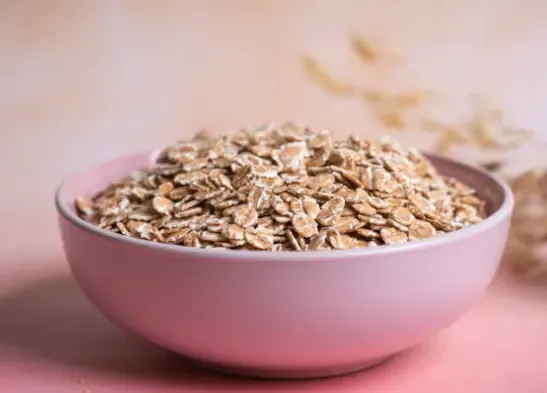Introduction
Oatmeal has long been hailed as a healthy breakfast option, touted for its ability to lower cholesterol, stabilize blood sugar levels, and promote heart health. However, recent research suggests that the benefits of oatmeal may not be as straightforward as they seem. In this article, we will delve into the topic of oatmeal, debunking common myths and uncovering surprising facts that may make you rethink its place in your diet.
The Link Between Oatmeal and Blood Sugar Levels
Many studies have claimed that oatmeal can help regulate blood sugar levels, making it an ideal choice for individuals with diabetes or those concerned about their glucose levels. However, a closer look at these studies reveals a more nuanced picture.
In comparison to white bread, a commonly used control in these studies, oatmeal does show a significant decrease in blood sugar spikes. For example, while white bread may cause a 10-point increase in blood sugar levels, oatmeal only results in a 5-point increase. This difference is undoubtedly positive, but it is essential to consider that the improvement is relative to a less healthy alternative.
Additionally, the beneficial effects on blood sugar levels are short-lived, occurring primarily immediately after consuming oatmeal. Furthermore, the studies demonstrating these benefits often focus on isolated compounds like beta-glucan, found in oats, rather than the whole grain itself. This isolated compound may not necessarily translate to the same effects when consuming oatmeal as a whole.
The Gluten Conundrum: Oatmeal and Inflammation
Oatmeal has long been considered a gluten-free option, making it a popular choice for individuals with celiac disease or gluten sensitivities. However, it is essential to recognize that oats contain a type of gluten called avanin. While this form of gluten may not affect everyone, it has been known to trigger an inflammatory response in some individuals.
The challenge lies in the delayed nature of the inflammatory response, making it difficult to connect symptoms to oatmeal consumption. If you have irritable bowel syndrome, inflammation, or celiac disease, you may find that eating oats exacerbates your symptoms. It is crucial to listen to your body and consider whether oatmeal aligns with your specific dietary needs.
The Dark Side of Oatmeal: Glyphosate Contamination
Glyphosate, a widely used weed killer, has become a topic of concern in recent years. Although the FDA's reports on various foods strangely omitted oats, independent studies have found traces of glyphosate in over 95% of oat products tested. This contamination occurs because glyphosate is used as a pre-harvest drying agent, not only in oats but also in wheat.
While the debate surrounding glyphosate's safety continues, the World Health Organization has classified it as a carcinogen, and legal cases have resulted in significant settlements due to its association with cancer, particularly Non-Hodgkin's lymphoma. When consuming oatmeal, opting for organic varieties may help minimize exposure to glyphosate.
Making Informed Choices: Oatmeal Alternatives and Intermittent Fasting
Considering the potential drawbacks of oatmeal, it is worth exploring alternative breakfast options that offer similar benefits without the potential downsides. One such option is eggs. Eggs are a nutritious and versatile choice, providing high-quality protein and essential nutrients that support overall health.
Alternatively, you might consider skipping breakfast altogether and embracing intermittent fasting. This eating pattern involves restricting your eating window to a specific timeframe, such as 16 hours of fasting and an 8-hour eating window. Intermittent fasting has gained popularity for its potential health benefits, including improved insulin sensitivity, weight management, and increased energy levels.
Conclusion
While oatmeal has long been hailed as a nutritional powerhouse, recent research sheds light on its potential drawbacks. Although oatmeal may offer certain benefits, such as improved blood sugar levels and cholesterol reduction when compared to less healthy alternatives like white bread, it is crucial to consider the limitations of these studies.
Moreover, the presence of avanin, a form of gluten in oats, may trigger inflammation in individuals with specific sensitivities. Additionally, the widespread contamination of oats with glyphosate poses concerns for those seeking a healthier diet.
Ultimately, making informed choices about your breakfast options is essential. Exploring alternatives like eggs or experimenting with intermittent fasting may lead to a more personalized and beneficial approach to your morning routine. As with any dietary decision, it is vital to listen to your body and make choices that align with your unique needs and preferences.
Remember, oatmeal may still have a place in a balanced diet, but understanding the potential drawbacks allows you to make more informed decisions about your overall health and well-being.

